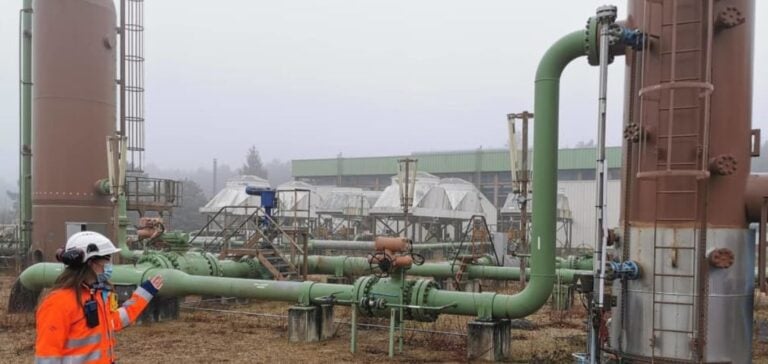EU Emission Allowance (EUA) prices rose significantly, reaching almost €77/tCO2e before falling back to around €75/tCO2e on May 24, following weaker auction results. According to data from S&P Global Commodity Insights, contracts for December delivery were valued at €76.11/tCO2e on May 23, having reached their highest level since January 3 the previous day. This upward trend is partly due to the increased correlation between carbon prices and European natural gas prices. Gregory Idil, a senior carbon broker, explained that, despite a slight increase in net short positions by hedge funds, the market remains optimistic until the gas market stabilizes.
Impact of natural gas on carbon prices
The Dutch TTF day-ahead contract was priced at €35.50/MWh on May 23, a level not seen since December 11, due to supply concerns. Concerns about a potential halt to Russian gas imports to Austria and unscheduled maintenance at some Norwegian facilities pushed TTF values higher. At the same time, demand from the industrial and power generation sectors is showing signs of resilience. Idil added that increased demand from industrial players, preparing for the September 2024 surrender deadline, sees current prices as relatively attractive compared to last summer’s €100/tCO2e.
Skepticism and auction results
Despite rising prices, some analysts remain skeptical that this uptrend will continue, citing fundamentals that have not yet turned positive and an increase in net short positions by investors. The results of the May 24 auction were also bearish, with 2.31 million permits sold at the German auction at €72.80/tCO2e, compared with €74.90/tCO2e at the EU auction the previous day.
Carbon prices pick up in the UK
Prices for UK emission permits (UKAs) reached their highest level since January 3, buoyed by strong buyer interest. Platts valued UKAs at £44.51/tCO2e ($56.57/tCO2e) on May 23. The UK government has launched a consultation to include greenhouse gas reductions (GGR) in its Emissions Trading Scheme (ETS). The consultation, which closes on August 15, focuses on five areas: policy design principles, cap details, allocation design, permanence and integration pathways. The UK ETS authority has indicated that the integration of GGRs could begin as early as 2028, although a decision on the timetable has not yet been taken.
UK climate targets
The UK government has reaffirmed its commitment to its climate targets despite outperforming its recent emissions reduction targets. The Department for Energy Security and Net Zero said it would not postpone the surplus from its third carbon budget after exceeding its target of reducing emissions by 15% between 2018 and 2022.
Future prospects
The current dynamics of carbon prices in Europe are influenced by a combination of economic and geopolitical factors. While the gas market continues to fluctuate, the correlation with carbon prices remains a determining factor. Political consultations and adjustments, such as those underway in the UK, will play a crucial role in the future development of carbon markets.
Industrial demand and corporate compliance strategies in the face of environmental regulations will continue to shape the carbon price landscape. Market players will be keeping a close eye on gas supply developments and climate policies to anticipate price movements.






















